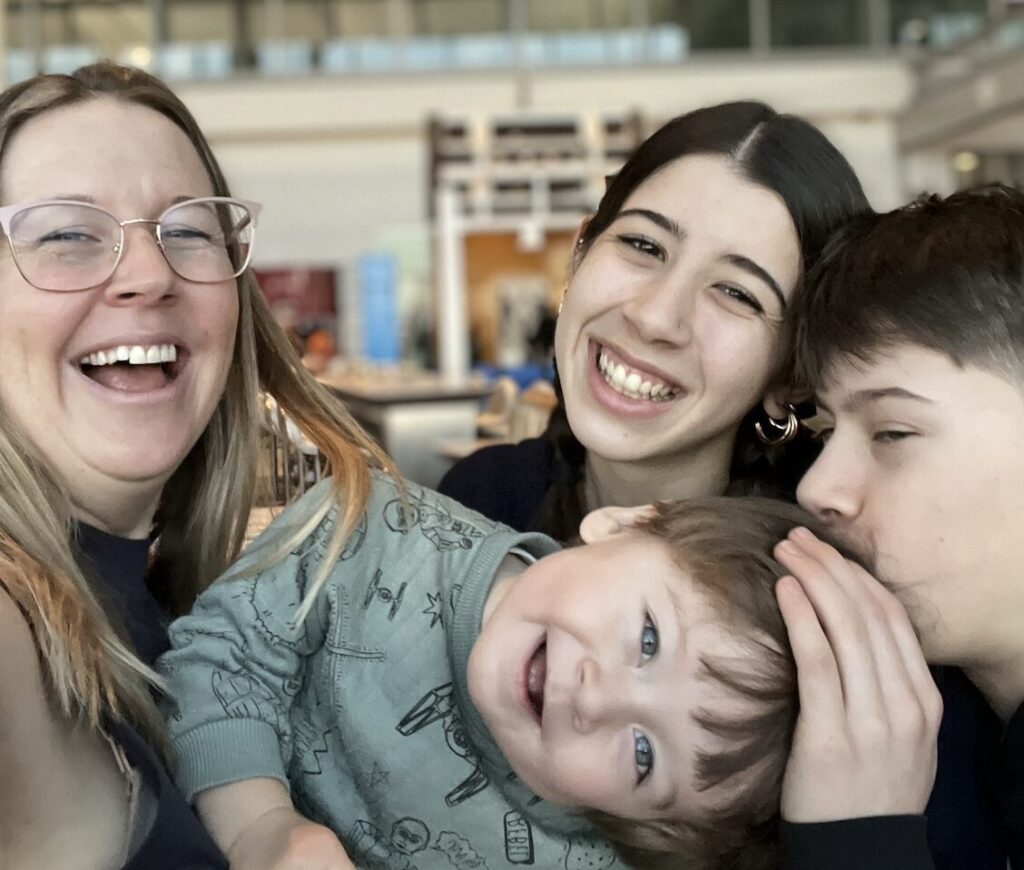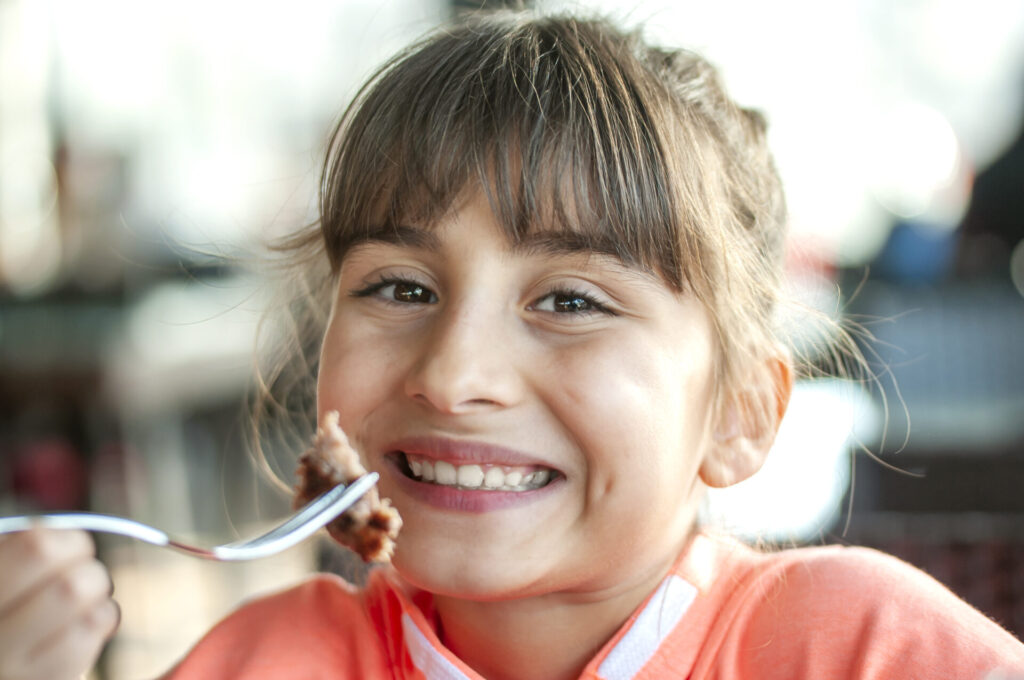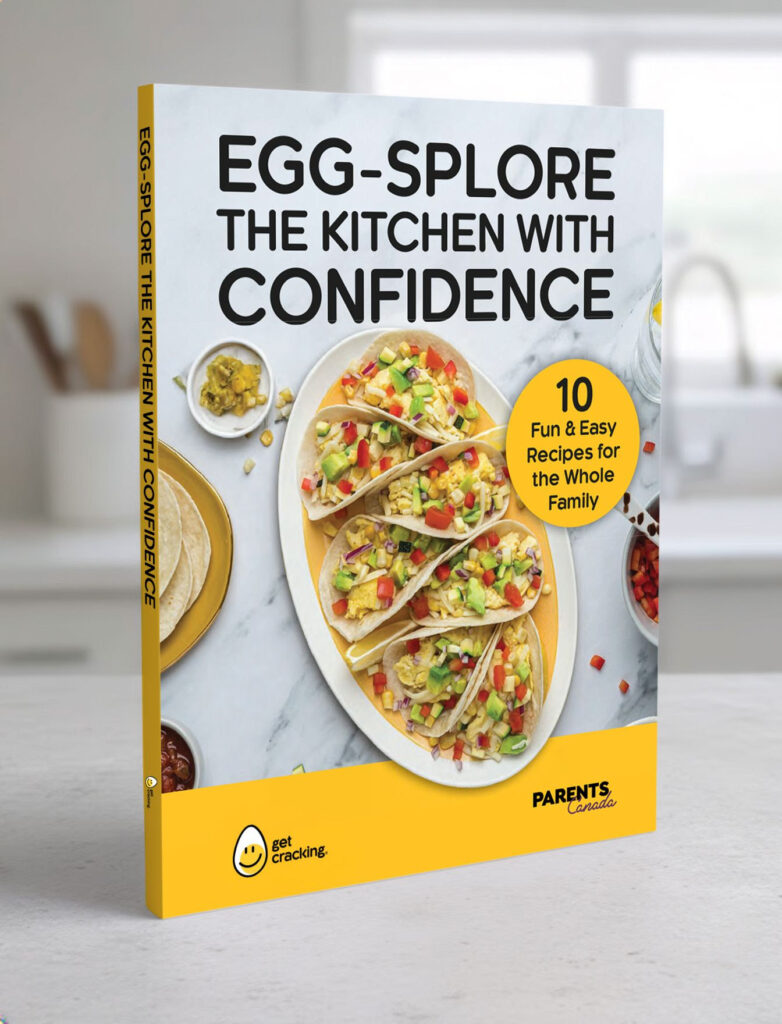
“Could you make me a sandwich, like the other kids’?” I asked my mother as she wrapped curry chicken drumsticks in aluminum foil for my lunch.
She raised an eyebrow at me. But my mother was the reason I was a social pariah at school. Each day, I would watch the other girls eat their dripless lunches while mine radiated smells like some sort of onion-infused nuclear bomb. After lunch, all the kids at Fallingdale Elementary School went out for recess. The girls skipped rope while I sulked by the brick wall. I wanted to be like Kathleen, with her long, shiny blond hair, light, airy summer dresses and lunches that smelled like vanilla. Her hair, her clothes, her sandwich. I envied all three. But I could only change one.
“People look at me strangely when I eat those things,” I said, pointing. “No one wants to play with me because of my lunch.”
She looked at me with a level gaze. I’d expected a fight, but she surprised me by agreeing to buy white bread, peanut butter and jelly.
The next day I walked to school armed with my sandwich, which smelled like candy instead of cumin. It was the aroma of triumph, an answer to the question of whether I could belong. I anxiously waited for lunchtime, and when it came I looked over at Kathleen, sinking her teeth into a chocolate doughnut.
As I opened the aluminum foil package – could my mother never be trained? – Kathleen turned and looked directly at my sandwich. The sandwich was working! Then I realized that directly behind my sandwich in her line of vision was the cutest boy in our class. Kathleen gave a little wave – not to my sandwich – before turning back to her shiny-haired friends. The sandwich had failed me. There wasn’t enough white bread in the world to make me instantly fit in with white kids.
To explain, it was only my third year in Canada. We had moved from Liverpool, England, to Brampton, Ontario, when I was five.
Now I was eight and experiencing my first existential nightmare. I wanted to tell my parents that I didn’t fit in, but I realized they didn’t fit in either. They had left behind their entire lives to make a better one for their children. Being in Canada meant opportunities that a life in rural Pakistan or even in Liverpool couldn’t provide, and for that they were grateful.
In Canada, I was the only brown girl in my class. I was shy and quiet and had no idea how to make friends. Looking different made it harder to break the ice. When I came home for lunch that day I must have looked extra sullen.
“Why are you here?” my mother asked. “I made you a sandwich. Did you lose it?”
I pulled out my sandwich and munched on it sadly. I’d relied on that sandwich to fix everything that was wrong with my life.
“I want to eat at home.”
“What’s wrong?” asked my mother. In a rare moment of honesty, I told her.
“The kids don’t like me. I have no friends.”
“Did someone tell you that?”
“No one says anything to me,” I said. “It’s like I’m invisible.”
“You should try harder,” she said. Then my mother said the most unexpected thing.
“I’m coming to school with you.”
I looked up to where I thought God must live, thinking, Am I not suffering enough without adding my mother to the mix?
She wouldn’t listen to my stammering protests and marched me back to school. The playground was full of children, mostly girls with spaghetti-strap tops and short skirts that revealed snatches of brightly patterned underwear when they jumped rope. I could see the shock on my mother’s face. She must have thought the playground was a nudist colony. My mother stopped in the middle of the playground, surveying the lay of the land with the authority of a general assessing the battlefield. She walked up to the leader, who happened to be Kathleen, my Kathleen, who was wielding a rope.
“Excuse me,” said my mother. “Can my daughter play with you?”
Kathleen looked first at my mother and then at me. My stomach growled as I mouthed a silent prayer: God, please kill me now. But I lived, and Kathleen finally made up her mind.
“Sure, she can play,” said Kathleen and handed me the rope so I could take over. My mother went home. The joy of that moment made me temporarily forget that I was supposed to be miserable. In fact, Kathleen was also happy to be released from the laborious chore of turning the rope. Until a girl tripped, the rope turners weren’t allowed back into the game, and today nobody was falling down. By a bizarre turn of events, both of us had been freed from our bondage.
From that day forward, I always played jump rope with the popular girls. Turns out that skipping rope on the playground was a meritocracy, so as long as my wrists still worked, I was allowed into their circle, even if I was dressed for the wrong century. Apparently all I had to do was ask. And yes, I was thankful to God, who clearly worked in mysterious ways.
The next week, as my mother packed my sandwich, I looked at her.
“What’s wrong?” she asked. “Do you want tuna instead of peanut butter?”
“Could you put the chicken drumsticks back into my lunch?” I asked. “I kinda miss them.”
Zarqa Nawaz lives in Regina with her husband and four kids. For more on Zarqa, visit zarqanawaz.com or follow her on Twitter @ZarqaNawaz.
Adapted from an excerpt of Laughing All the Way to the Mosque, by Zarqa Nawaz. Harper Collins. © 2014.










